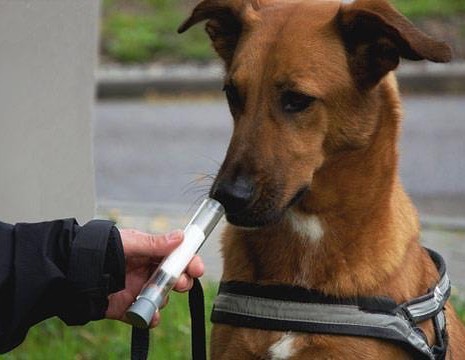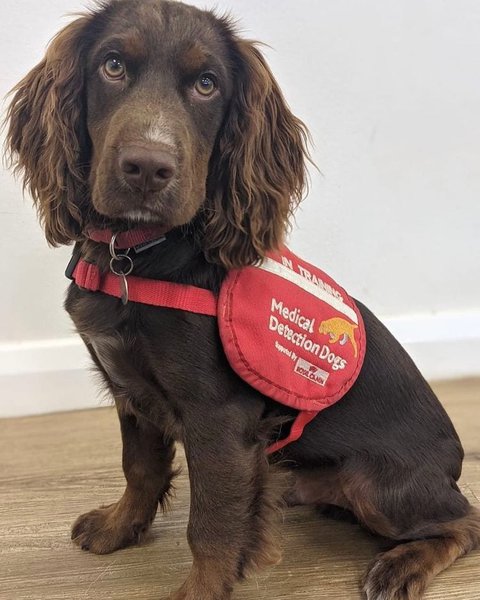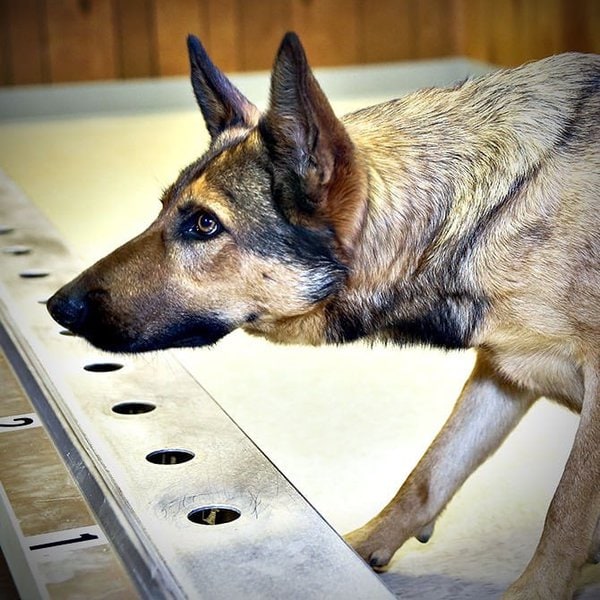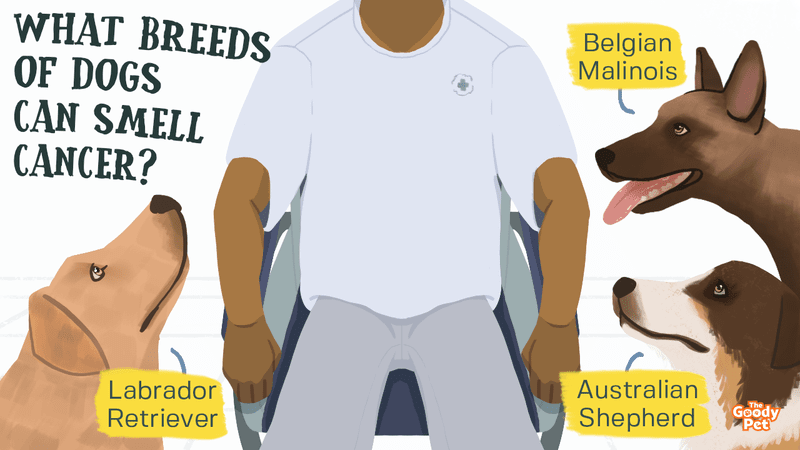Dogs are very well known for their astounding sense of smell, and this ability has proved to be an asset to the world of medicine. That said, the diagnostic quality of dogs’ sense of smell is important in sniffing out certain diseases, and questions have been asked on whether this includes the dreaded cancer disease. So, can dogs smell cancer?
Yes, dogs can smell cancer. Thanks to their super sharp sense of smell, specially trained dogs are capable of sniffing out and detecting the presence of cancerous cells in humans. These dogs often react by constantly sniffing at parts of the body potentially affected by cancer.
While there are many other dog breeds that have shown the impeccable quality of detecting cancer with their sense of smell, you’re more likely to find this quality in a purebred or one of the numerous cross breeds of a Labrador Retriever.
In this article, you will be treated to the knowledge of how man’s best friends go about their business of detecting cancer and whether or not your pooch’s breed is a member of the exclusive league of cancer-detecting canines. However, before we delve into all this, let’s take a look at what dogs typically do when they smell cancer in their humans.
What Do Dogs Do When They Smell Cancer In Humans?

Common behavior exhibited by dogs when they smell cancer in humans includes sniffing, staring, and pawing at body parts, licking and biting at lesions on your body, and making attempts to comfort you.
According to scientific research, cancer, like many other diseases, leaves unique footprints in bodily secretions, tissues, and fluids that give off specific odors. Cancer cells are the main actors in this, as they are known to give off the markers that dogs pick up when sniffing around.
How Do Dogs Act When They Sense Cancer?
Now that we’ve established how dogs are able to detect the presence of cancerous cells in the human body, there are certain behaviors exhibited by our furry friends when they sniff out cancer in your body.
That said, a dog may be trying to tell you that you have cancer if you notice behavior such as:
Sniffing At A Seemingly Healthy Part Of Your Body
As inferred earlier, one major quality that makes dogs so adept at discovering cancer in humans is their sense of smell; Hence, it’s only expected that when pooches detect anything alarming in your body system, their sense of smell becomes heightened, causing them to continuously sniff at you.
In a particular case study of melanoma, a life-threatening skin cancer condition, dogs constantly sniffed and nipped at the lesions on their owners’ skin, thereby informing the individuals of the probable sites of their condition and enabling them to get the required medical attention.
Interestingly, dog owners, who came forward with situations of their canine buds sniffing a seemingly healthy part of their bodies have been diagnosed with cancer – many at stages as early as the first stage!
However, while you might also be enjoying that level of affection from your pet, it would be unwise to make a medical conclusion without undergoing a confirmatory test conducted in a laboratory, and by the appropriate personnel.
Staring And Pawing At Sections Of Your Body
Interestingly, you may also find your dear Fido staring at you more intently than usual, following you around the house, and always scooting close to you once it has detected the presence of cancerous cells in your body.
Acting like this is usually an attempt by the pooch to comfort you, as it can tell that all might not be going well with you medically.
Making Attempts to Lick Skin Lesions
Another peculiar behavior that is exhibited by dogs when they detect cancer in their humans is an attempt to lick the cancerous sites. And this attempt to lick cancerous sites occurs at a higher frequency if there are visible lesions on your skin.
Are There Cancer-Smelling Dogs?

There are several dogs able to detect cancer. However, dogs’ senses are not restricted to discovering only cancer, and they are quite capable of detecting other diseases.
Apart from cancer, some of the other diseases that dogs are capable of diagnosing include diabetes, malaria, and Parkinson’s disease – even years before the onset of the disease!
In the same vein, it is worth mentioning that our furry companions can discover many types of cancers including melanoma, lung cancer, breast cancer, ovarian cancer, and prostate cancer.
What Breeds Of Dog Can Sniff Out Cancer?
Various dog breeds are known cancer-detecting canines that work with different research teams, helping them to distinguish healthy samples from cancerous samples in the process.
That said, some of the more prominent examples of cancer-detecting dog breeds can include:
- Labrador Retriever
- Australian Shepherd
- Belgian Malinois
Can An Untrained Dog Smell Cancer?
There are several cases where untrained dogs have discovered and correctly diagnosed cancer in their owners, and this can be attributed to such pooch’s extraordinary sense of smell, among other factors.
That said, while cancer-detecting dogs don’t particularly require training to improve their innate sense of smell, they still require some level of training to enhance judgment and perfect identification of cancer in a clinical setting.
One major part of this cancer detection training scheme is a reward system, where the dog is praised and given toys or treats for correctly identifying cancerous cells.
How Do Dogs Detect Cancer?
Experimental research has shown that cancer-detecting canines, having undergone training, discovered breast cancer and lung cancer by sniffing the breaths of the patients.
These studies also explained how they used the biochemical differences in the subjects’ breath to discriminate between ill patients and healthy patients – this can be quite difficult for an untrained dog to pull off.
Furthermore, reports from this research also showed that dogs discovered bladder cancer and prostate cancer by sniffing the urine of the patients, while the ovarian tumor was discovered by sniffing tumor and blood samples.
Colorectal cancer was also detected by sniffing the patient’s breath and poop sample, while biopsy samples were used to uncover cervical cancer in subjects.
What Do Dogs Smell When They Detect Cancer?
It has been scientifically proven that cancer-smelling dogs perceive cancerous cells as either sweet or gasoline-scented, depending on the type of cancer.
Many – out of curiosity – have wondered what cancer really smells like, and you’re not in any way different if you want to know what your dog perceives when they detect cancer in human beings.
What Does Cancer Smell Like To Dogs?
Cancer cells – or healthy cells infected by cancer – leave unique traces in the human body and bodily fluids. Generated by the malignant growth, these unique traces or markers are usually low concentrations – as low as parts per trillion – of alkanes and aromatic compounds, which give off specific odors.
Hence, it is safe to say that cancer-detecting canines perceive either a sweet smell – characteristic of aromatic compounds – or they perceive a gasoline-type odor, which can be attributed to some alkane compounds.
Our furry companions, with special training, detect cancer by distinguishing the specific odor given off by the samples collected from the subjects. Interestingly, dogs that undergo special training to sniff out certain diseases are called ‘medical detection dogs’ – however, we can all agree that ‘medical detectives’ sounds cooler.

What Does The Future Hold For Canine Cancer Detection?
Canine cancer detection is one of the foremost advancements in the world of medicine in recent years, and it’s a simple, safe, and noninvasive procedure of cancer diagnosis, and this diagnostic procedure comes with a handful of advantages.
Firstly, having a dog sniff out cancerous cells induces fewer side effects in individuals. And in addition, having a cancer-detecting dog as a pet makes it easier to carry out simple cancer tests at home and detect this deadly disease at its early stages.
It is also worth mentioning how dogs’ extraordinary olfactory ability has generated a technological response in the world of engineering, as detector machines are being developed to easily discover odor signatures given off by cancer cells.
Going forward, you should be more attentive to your canine bud from now on. But, it’s also important to note that while major headway has been made concerning the use of cancer-detecting canines in a clinical setting, there are still ongoing works to ensure that it’s safe for all parties involved – human’s best friend especially.





